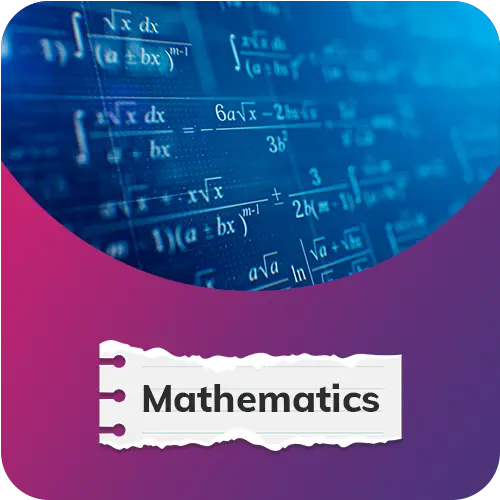
Mathematics is a universal language of logic, structure, and precision. As one of the core academic disciplines across all curricula and education systems worldwide, Mathematics is not only central to scientific and technological advancement but also integral to everyday decision-making, problem-solving, and critical thinking. Across CBSE, ICSE/ISC, IB, British, American, and other curricula, Mathematics is taught in a progressive, spiral approach — starting from basic number sense to abstract algebra, calculus, and data analysis in senior grades. The subject develops numeracy, logical reasoning, spatial awareness, and analytical aptitude.
Mathematics serves as the foundational tool for understanding and interpreting the world. It enables students to:
In a rapidly advancing digital world, mathematical literacy is crucial for success in STEM fields, economics, architecture, and even emerging sectors like data science and artificial intelligence. Moreover, Mathematics nurtures discipline, persistence, and the ability to make reasoned judgments — qualities essential to holistic development.
In the foundational years, Mathematics teaching emphasizes:
Curricula such as EYFS (UK), IB PYP, and American Pre-K/Kindergarten focus on experiential learning — using manipulatives, visual aids, songs, games, and real-world objects to instill number sense and curiosity. Concepts are introduced through playful activities, helping children understand quantities and relationships in their environment.
Primary Grades (Grades 3 to 5)
At this stage, the focus shifts to consolidating foundational skills and introducing more complex operations:
CBSE and ICSE syllabi introduce structured textbooks with step-by-step exercises. The British curriculum (Key Stage 2) and American Common Core standards integrate mental math, estimation, and real-life application of math. The IB PYP emphasizes transdisciplinary connections, where Mathematics is integrated with units of inquiry. Mathematics becomes a subject of structure and strategy — encouraging students to justify solutions, apply multiple methods, and develop fluency in arithmetic operations.
Middle School (Grades 6 to 8)
Middle school marks a key transition from concrete arithmetic to abstract mathematical reasoning. Students delve into:
Curricula at this stage introduce pre-algebra and basic geometry, preparing students for formal algebra and higher math. The ICSE syllabus includes mental math and logical reasoning. CBSE emphasizes application through word problems and NCRT-driven frameworks. Cambridge Lower Secondary Mathematics encourages reasoning, reflection, and mathematical communication. In IB MYP, students learn Mathematics in global contexts, exploring patterns, modeling, and technology integration. The American curriculum focuses on standards-based learning, emphasizing fluency, coherence, and application.
High School (Grades 9–10)
Students are now introduced to deeper and more abstract branches of mathematics:
Different curricula take varied approaches:
Students are assessed on both procedural fluency and conceptual understanding, with an increasing focus on using mathematics for decision-making and problem-solving.
Senior Secondary (Grades 11–12)
Mathematics in senior grades becomes specialized and rigorous. Students may choose from multiple levels based on interest and career orientation:
Across curricula:
These courses emphasize higher-order thinking, logic, and modeling, preparing students for careers in science, engineering, economics, business, and beyond.
Mathematics serves as a support system for other subjects:
Math also nurtures transferable skills such as precision, pattern recognition, and logical sequencing — vital in interdisciplinary and collaborative learning.
Globally, curricula offer different tracks or streams in Mathematics:
These ensure all learners — whether math-enthusiasts or math-averse — receive appropriate challenge and support.
Special provisions are also made for students with learning differences (dyscalculia, etc.), ensuring inclusive access to mathematical understanding through visual, auditory, and kinesthetic tools.
Modern mathematics teaching blends traditional methods with innovative tools:
IB and British systems focus heavily on reasoning, communication, and conceptual understanding, while CBSE and ICSE follow a content-rich, practice-oriented approach. American standards emphasize problem-solving, mathematical modeling, and numeracy in real-world contexts.
Mathematics is more than computation; it is a structured way of thinking that unlocks patterns, structures, and truths about the universe. Across all educational systems, from CBSE to IB and from IGCSE to AP, Mathematics is foundational to learning, innovation, and societal progress.
By nurturing both precision and creativity, Mathematics helps learners become analytical thinkers, confident problem-solvers, and informed decision-makers — capable of navigating complex challenges in academics, careers, and life.
Whether it’s calculating change at a store, coding a software program, or designing a bridge, Mathematics equips students with the tools to build the future. Its enduring relevance makes it one of the most powerful subjects in the school curriculum — across all grades, all systems, and all aspirations.